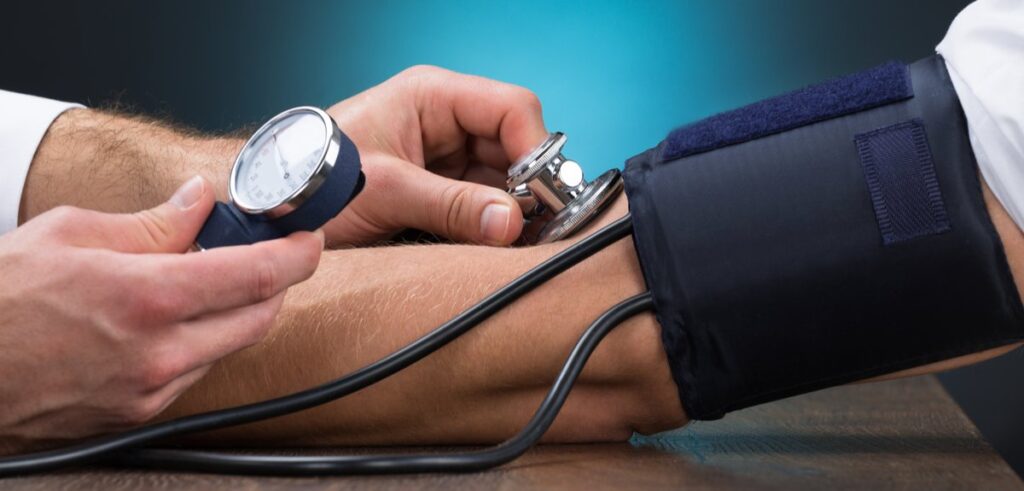
High blood pressure, or hypertension, is one of the most common health issues affecting millions of people worldwide. It’s a silent condition that often goes unnoticed until it leads to more severe health problems like heart disease, stroke, and kidney failure.
- Introduction: The Link Between Weight Loss and High Blood Pressure
- Overview of the relationship between weight loss and hypertension.
- Why high blood pressure is a significant health concern.
- Understanding High Blood Pressure (Hypertension)
- Definition and causes of high blood pressure.
- Risk factors and impact of hypertension on overall health.
- How Weight Loss Affects the Body
- The science of how shedding pounds impacts bodily functions.
- The role of weight loss in reducing strain on the heart.
- The Role of Weight Loss in Lowering High Blood Pressure
- The connection between weight reduction and blood pressure regulation.
- Studies and evidence supporting the link.
- The Physiological Mechanisms Behind Weight Loss and Blood Pressure
- How losing weight improves blood vessel function.
- The role of fat reduction in lowering stress on arteries.
- Scientific Studies on Weight Loss and Blood Pressure
- A review of clinical studies that support the theory.
- Real-world examples of people who have successfully lowered their blood pressure through weight loss.
- How Much Weight Do You Need to Lose to See Results?
- Insights into how much weight loss is typically required to see a noticeable drop in blood pressure.
- The recommended amount of weight loss for hypertension management.
- Dietary Changes That Support Weight Loss and Lower Blood Pressure
- Best foods to eat for weight loss and healthy blood pressure.
- Diets that have been proven to be effective, such as the DASH diet and Mediterranean diet.
- Exercise and Weight Loss: The Best Routines for Lowering Blood Pressure
- How physical activity aids in weight loss and hypertension control.
- Recommended exercises to help lower blood pressure.
- Other Lifestyle Changes to Complement Weight Loss in Lowering Blood Pressure
- The importance of stress management, sleep, and alcohol moderation.
- How improving lifestyle habits can enhance the benefits of weight loss.
- The Impact of Losing Belly Fat on Blood Pressure
- Why belly fat is particularly harmful to blood pressure.
- How targeting visceral fat can improve heart health.
- Is Weight Loss the Only Solution for High Blood Pressure?
- Other methods to manage high blood pressure alongside weight loss.
- Medication and alternative treatments.
- Potential Risks and Considerations
- What to watch out for when losing weight, especially with high blood pressure.
- Medical guidance and safe weight loss practices for people with hypertension.
- Real Life Success Stories: Weight Loss and High Blood Pressure Management
- Personal stories of individuals who’ve improved their blood pressure through weight loss.
- Lessons from success stories that can motivate others.
- Conclusion: Taking Control of Your Health
- Final thoughts on weight loss as an effective tool for lowering high blood pressure.
- Encouragement to take the first steps toward a healthier lifestyle.
- FAQs
- What is the recommended amount of weight loss to lower high blood pressure?
- Can you manage high blood pressure without medication by losing weight?
- Does the type of weight loss diet matter when trying to lower blood pressure?
- How quickly can weight loss affect blood pressure?
- Is exercise enough to lower high blood pressure, or is diet also essential?
Can Weight Loss Lower High Blood Pressure?
Introduction: The Link Between Weight Loss and High Blood Pressure
High blood pressure, or hypertension, is one of the most common health issues affecting millions of people worldwide. It’s a silent condition that often goes unnoticed until it leads to more severe health problems like heart disease, stroke, and kidney failure. Fortunately, managing high blood pressure can be done through several lifestyle changes, with weight loss being one of the most effective methods. In this blog post, we’ll dive deep into how losing weight can help lower high blood pressure and improve overall health.
Read Also “The Proven Science Behind Metabolism and Weight Loss”
Understanding High Blood Pressure (Hypertension)
Before diving into how weight loss can help, it’s essential to understand what high blood pressure is and why it’s a problem. Hypertension occurs when the force of blood against the walls of your arteries is consistently too high. This condition can put a strain on the heart and blood vessels, increasing the risk of heart disease and stroke. The causes of high blood pressure can range from lifestyle factors like poor diet and lack of exercise to genetics and stress.
The risk factors for hypertension include obesity, excessive alcohol consumption, smoking, lack of physical activity, and a poor diet high in sodium. Understanding these factors is crucial because addressing them can help manage or prevent high blood pressure.
How Weight Loss Affects the Body
Losing weight has a profound impact on various aspects of our health, particularly heart health. When you lose weight, the body experiences several physiological changes. Weight loss reduces the workload on the heart, lowers cholesterol levels, and improves overall circulation. These changes are essential for people with high blood pressure, as they help alleviate the strain on the cardiovascular system.
Fat loss, particularly around the abdomen, reduces the amount of fat that needs to be circulated, leading to improved heart function. This, in turn, helps lower blood pressure levels, as the heart doesn’t need to pump as hard to move blood throughout the body.
The Role of Weight Loss in Lowering High Blood Pressure
Several studies have shown that losing even a modest amount of weight can lead to significant reductions in blood pressure. According to the American Heart Association, every 10 pounds of weight loss can lead to a drop of about 5-20 mmHg in systolic blood pressure (the top number in a blood pressure reading). This is a significant reduction that can reduce the risk of heart disease and stroke.
In fact, weight loss can be just as effective as taking medication to lower blood pressure, especially for individuals who are overweight or obese. The best part is that weight loss doesn’t require drastic measures. Small, sustainable changes like eating a healthier diet and getting more exercise can result in considerable improvements in blood pressure levels.
The Physiological Mechanisms Behind Weight Loss and Blood Pressure
Weight loss affects the cardiovascular system in several ways that contribute to lower blood pressure. When you lose weight, particularly abdominal fat, your body becomes more efficient at handling blood flow. The reduction in visceral fat (fat stored around your organs) decreases the strain on your blood vessels, allowing them to expand and contract more easily.
Additionally, weight loss has been shown to improve the functioning of the endothelium, which is the inner lining of blood vessels. This improvement allows for better vasodilation (widening of the blood vessels), making it easier for blood to flow through the body at a lower pressure.
Scientific Studies on Weight Loss and Blood Pressure
Many clinical studies have demonstrated the link between weight loss and lower blood pressure. One notable study published in the American Journal of Hypertension found that overweight individuals who lost weight through diet and exercise experienced a significant reduction in both systolic and diastolic blood pressure levels. Other studies have found similar results, with participants experiencing improvements after losing as little as 5-10% of their body weight.
Real-world examples also support these findings, with countless individuals reporting a reduction in their blood pressure after making lifestyle changes that included weight loss.
How Much Weight Do You Need to Lose to See Results?
It’s often said that losing just 5-10% of your body weight can have a noticeable impact on blood pressure. For example, if you weigh 200 pounds, losing 10-20 pounds could be enough to see a significant drop in blood pressure. However, the exact amount of weight loss required can vary from person to person. For some, losing a small amount of weight may be enough, while others may need to lose more to achieve optimal blood pressure levels.
Dietary Changes That Support Weight Loss and Lower Blood Pressure
Diet plays a crucial role in both weight loss and blood pressure management. A balanced diet that includes plenty of fruits, vegetables, whole grains, lean proteins, and healthy fats can help you lose weight while also lowering your blood pressure. The DASH (Dietary Approaches to Stop Hypertension) diet is one of the most effective eating plans for managing hypertension. This diet emphasizes foods that are high in potassium, magnesium, and fiber while limiting sodium and saturated fat.
Similarly, the Mediterranean diet, which focuses on plant-based foods, healthy fats, and lean proteins, has also been shown to help reduce blood pressure and support weight loss.
Exercise and Weight Loss: The Best Routines for Lowering Blood Pressure
Physical activity is another critical factor in weight loss and blood pressure management. Regular exercise helps you burn calories, build muscle, and reduce fat, all of which contribute to weight loss. In addition to helping you shed pounds, exercise strengthens the heart, making it more efficient at pumping blood and lowering pressure.
Aerobic exercises like walking, running, cycling, and swimming are particularly effective for improving heart health and lowering blood pressure. Strength training exercises can also help by increasing muscle mass, which helps burn more calories and supports weight loss.
Other Lifestyle Changes to Complement Weight Loss in Lowering Blood Pressure
In addition to diet and exercise, other lifestyle changes can support weight loss and lower blood pressure. Managing stress, getting enough sleep, and limiting alcohol intake are all important factors in hypertension management. Chronic stress, poor sleep, and excessive alcohol consumption can all raise blood pressure, so addressing these factors can complement the benefits of weight loss.
The Impact of Losing Belly Fat on Blood Pressure
Belly fat, particularly visceral fat, is particularly harmful to cardiovascular health. This type of fat is stored around the organs and can contribute to inflammation, insulin resistance, and high blood pressure. Targeting belly fat through weight loss can significantly improve heart health and lower blood pressure levels.
Is Weight Loss the Only Solution for High Blood Pressure?
While weight loss is one of the most effective ways to lower high blood pressure, it’s not the only solution. For some people, medication may be necessary to control blood pressure. However, weight loss can often complement medications, allowing people to reduce their reliance on them or even stop taking them altogether.
Potential Risks and Considerations
While weight loss can be beneficial for lowering blood pressure, it’s important to approach it safely, especially for individuals with hypertension. Rapid weight loss or extreme diets can lead to nutrient deficiencies and other health issues. It’s essential to consult with a healthcare provider before starting any weight loss program, particularly if you have high blood pressure.
Real Life Success Stories: Weight Loss and High Blood Pressure Management
There are countless success stories of individuals who have successfully lowered their blood pressure through weight loss. For example, John, a 55-year-old man with hypertension, lost 30 pounds over the course of six months and saw his blood pressure drop from 160/100 mmHg to 120/80 mmHg. These real-life stories prove that with dedication and the right approach, it’s possible to manage high blood pressure through weight loss.
Read Also “Top 10 Supplements for Weight Loss That Actually Work And Very Affordable Too”
Conclusion: Taking Control of Your Health
Losing weight is one of the most powerful tools you have for lowering high blood pressure and improving your overall health. By incorporating healthier eating habits, regular exercise, and other lifestyle changes, you can make significant strides toward managing hypertension and living a longer, healthier life. Remember, every small change counts, so start taking steps today to improve your health and lower your blood pressure.
FAQs
1. What is the recommended amount of weight loss to lower high blood pressure?
Losing 5-10% of your body weight is often enough to see a significant reduction in blood pressure. For example, if you weigh 200 pounds, losing 10-20 pounds could help lower your blood pressure.
2. Can you manage high blood pressure without medication by losing weight?
Yes, in many cases, losing weight can help reduce blood pressure to healthy levels, potentially reducing the need for medication. However, it’s essential to consult with your doctor before making any changes.
3. Does the type of weight loss diet matter when trying to lower blood pressure?
Yes, diets like the DASH diet and the Mediterranean diet have been proven to help lower blood pressure while promoting weight loss. These diets focus on nutrient-dense foods and limit unhealthy fats and sodium.
4. How quickly can weight loss affect blood pressure?
You can start seeing improvements in blood pressure within a few weeks to months of making changes to your diet and exercise routine, especially if you lose a modest amount of weight.
5. Is exercise enough to lower high blood pressure, or is diet also essential?
Both exercise and diet play crucial roles in managing high blood pressure. Regular physical activity helps lower blood pressure, but a balanced diet is equally important for supporting weight loss and heart health.







One Comment